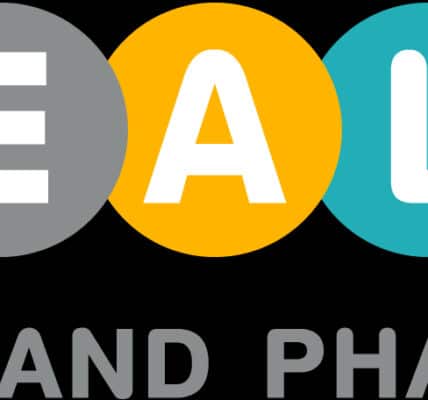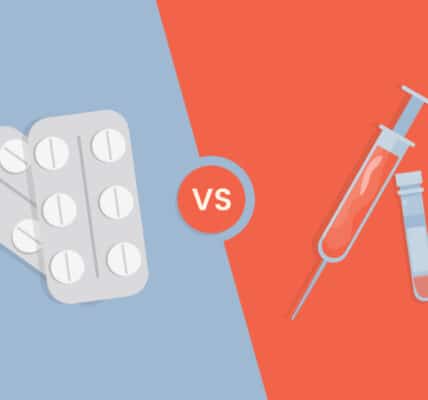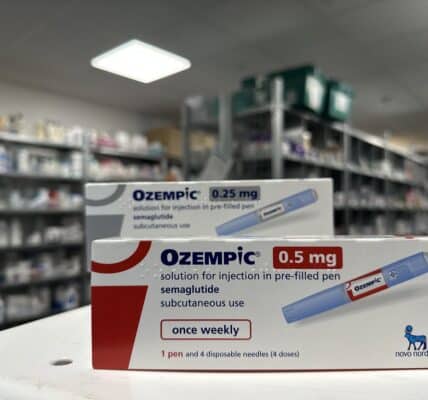New in Concierge Medicine: GLP-1 Drugs for Addiction Treatment

Tucked into the hills of Bucks County, Pennsylvania, is an upscale addiction recovery center that specializes in serving the needs of wealthy professionals suffering from a wide variety of compulsive behaviors, especially alcohol use disorder (AUD), opioid use disorder (OUD), other substance use disorders (SUDs), eating addiction, gambling addiction, and addiction to sex or pornography.
The campus of the Caron Treatment Centers is adjacent to the Galen Hall golf course in Wernersville, PA. Founded by a trio of doctors who are all in recovery themselves, Caron recently opened a second inpatient residential addiction treatment facility in Delray Beach, Florida. One of the secrets of their success? Using GLP-1 drugs off-label for the treatment of addiction.
The amazing Lev Facher, addiction reporter for STAT News, conducted interviews with the founders of Caron and other physicians who describe “GLP-1s appearing to transform people’s addictive relationships with tobacco, nail-biting, drinking, gambling, drugs, sex, shopping, and more.”
As we have pointed out here at AddictionNews, drug companies are dragging their heels conducting trials of GLP-1 drugs against addiction. There are many reasons for their sluggishness, including the cost of trials, the high dropout rate for the target population, and the relatively small size of the market. The main reason is that companies manufacturing GLP-1 drugs for weight loss and Type 2 diabetes do not want to see those huge, potentially trillion-dollar markets jeopardized by negative outcomes in addiction trials.
While the scientific community awaits trials, the medical community is conducting its own research. Caron prescribes GLP-1 drugs off-label for addiction and is getting great results. The main feedback is that the drugs reduce cravings — for all sorts of things. Users say it “quiets the voices” in their heads that normally urge them to indulge.
The exact mechanism through which GLP-1 drugs impact cravings is still a mystery. The drugs appear to act on both the digestive tract and the brain’s reward system. Dr. Klein, one of the Caron founders who uses semaglutide himself, told STAT News he had “learned to navigate the gastrointestinal issues common in those who take GLP-1s.”
Dr. Klein met Dr. Sarhan in recovery in the Los Angeles area. Both doctors had seen how people in their Alcoholics Anonymous (AA) groups who were taking Ozempic or Mounjaro for weight loss reported no longer having cravings. At upscale addiction treatment facilities in California, word got around pretty quickly. People were happier when recovering with GLP-1 drugs.
In a fascinating departure from the way GLP-1 drugs are prescribed, Caron starts patients with one-tenth the standard dosage. Injections are weekly, and can be tightly monitored at the inpatient facility. They begin with 0.25mg and taper up to 0.5mg. Most GLP-1 drugs are prescribed in 2.0 mg doses.
Patients pay $30,000 for 30 days of residential treatment at Caron and double that for a private room and other amenities. Insurance often doesn’t fully cover staying at Caron, and it’s clear from Farcher’s interviews that the founders spend a lot of time fighting with insurance companies.
Even with the stiff charge, Caron has paid for the semaglutide treatment with a grant from the Center for Addiction, Science, Policy, and Research (CASPR), a group we have written about at AddictionNews that is devoted to spearheading breakthrough discoveries in addiction treatment that will scale. STAT News reports that more than 200 patients have received Caron’s GLP-1 treatment in the past year, but the provider is not yet releasing any statistics because “it’s not a trial” and due to patient confidentiality.
The future of the use of GLP-1 drugs for addiction treatment is promising. Two things holding it back are the sudden loss of National Institute of Health research funds and the reluctance of drug companies to conduct tests on their golden goose.
Written by Steve O’Keefe. First published July 15, 2025.
Sources:
“Ozempic for addiction: How an elite rehab center is using GLP-1s to ‘obliterate’ all kinds of cravings,” STAT News, July 14, 2025.
“An Innovation Agenda For Addiction: Breakthrough Medicines That Scale,” Federation of American Scientists, January 6, 2025.
Image Copyright: tomas1111.




